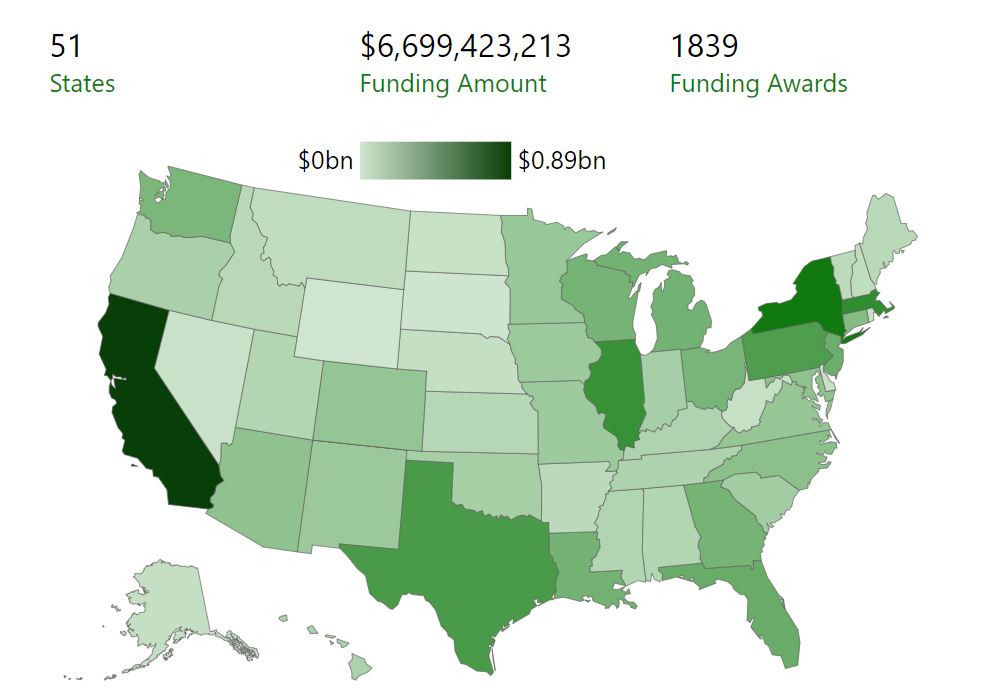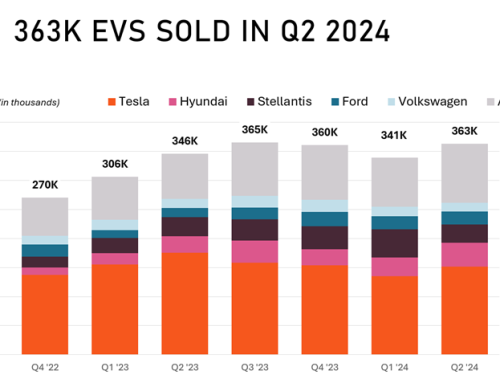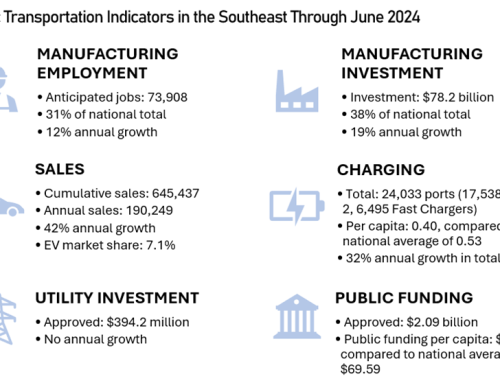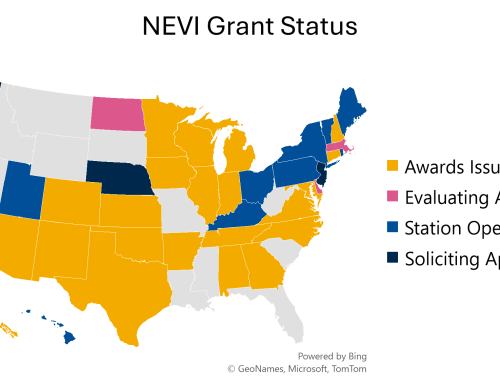
Source: State Policy Dashboard
It has officially been three years since the signing of the landmark climate legislation known as the Infrastructure Investment and Jobs Act (IIJA), commonly referred to as the Bipartisan Infrastructure Law. Signed into law on November 15, 2021, this historic bill authorized an unprecedented $1.2 trillion investment in transportation and clean energy.
In the three years since its passage, funds made available through IIJA have begun translating into tangible outcomes. Atlas has been closely tracking the funding progress across several major programs funded by IIJA, including the Clean School Bus Program, the Buses and Bus Facilities Program, Low-No, the National Electric Vehicle Infrastructure (NEVI) Program, and the Charging and Fueling Infrastructure (CFI) Discretionary Grant Program. Together, these initiatives have awarded nearly $7 billion to fund nearly 1,800 transportation electrification projects, nearly half of which has been awarded in 2024. Of this total, nearly $5.3 billion has been directed toward bus electrification, while approximately $1.1 billion has supported charging infrastructure development. Below is a breakdown of the status and impact of awards across these programs.
Buses and Bus Facilities Program and Low-No: The Buses and Bus Facilities (BBF) and Low or No Emission Vehicle (Low-No) grant programs have collectively awarded nearly $3 billion to support the electrification of buses and associated infrastructure, as well as to advance other cleaner fuel technologies. Most recently, on July 9, 2024, the programs awarded $1.5 billion for 117 transit bus projects across 47 states in a third round of funding. The BBF program awarded $400 million in this round and the Low-No program awarded $1.1 billion to projects supporting both zero- and low-emission fuel types.
Clean School Bus Program: Initially created under IIJA and extended through the Inflation Reduction Act (IRA), the Clean School Bus Program has awarded nearly $3 billion in grants and rebates to school districts nationwide to procure electric school buses. In May 2024, the program awarded $900 million to fund the purchase of over 3,400 new clean school buses—92 percent of which are electric—for approximately 530 districts. The remaining awards were allocated to propane or natural gas-fueled buses.
CFI: To address charging gaps in underserved communities and corridors, the CFI program has awarded over $1 billion to support EV charging and alternative fueling projects, of which $994 million was directed specifically toward electric projects. In August 2024, $521 million was awarded to develop over 9,200 EV charging ports. Of this, $321 million is funding 41 community-focused projects, including installations of Level 2 and DC fast chargers. The remaining $200 million supports 10 projects aimed at installing chargers along Alternative Fuel Corridors (AFCs).
NEVI: States have awarded nearly $500 million to EV charging developers and site hosts to build NEVI-funded chargers along critical highway corridors, with nearly two-thirds of these funds—approximately $330 million—awarded in 2024 alone. To date, 32 states and Washington, D.C., have issued awards, primarily to private companies, though not all states have disclosed the specifics of their allocations. Notably, 23 NEVI-funded chargers are now operational across nine states, including Hawaii, Kentucky, Maine, New York, Ohio, Pennsylvania, Rhode Island, Utah, and Vermont.
Details on these programs, including award statuses and funding progress, can be explored on our State Policy Dashboard by selecting the yellow filter bar on the right-hand side of the page and checking the “Federal” box under “Source of Funds” and the “Funding Awarded” box under “Funding Status.”


